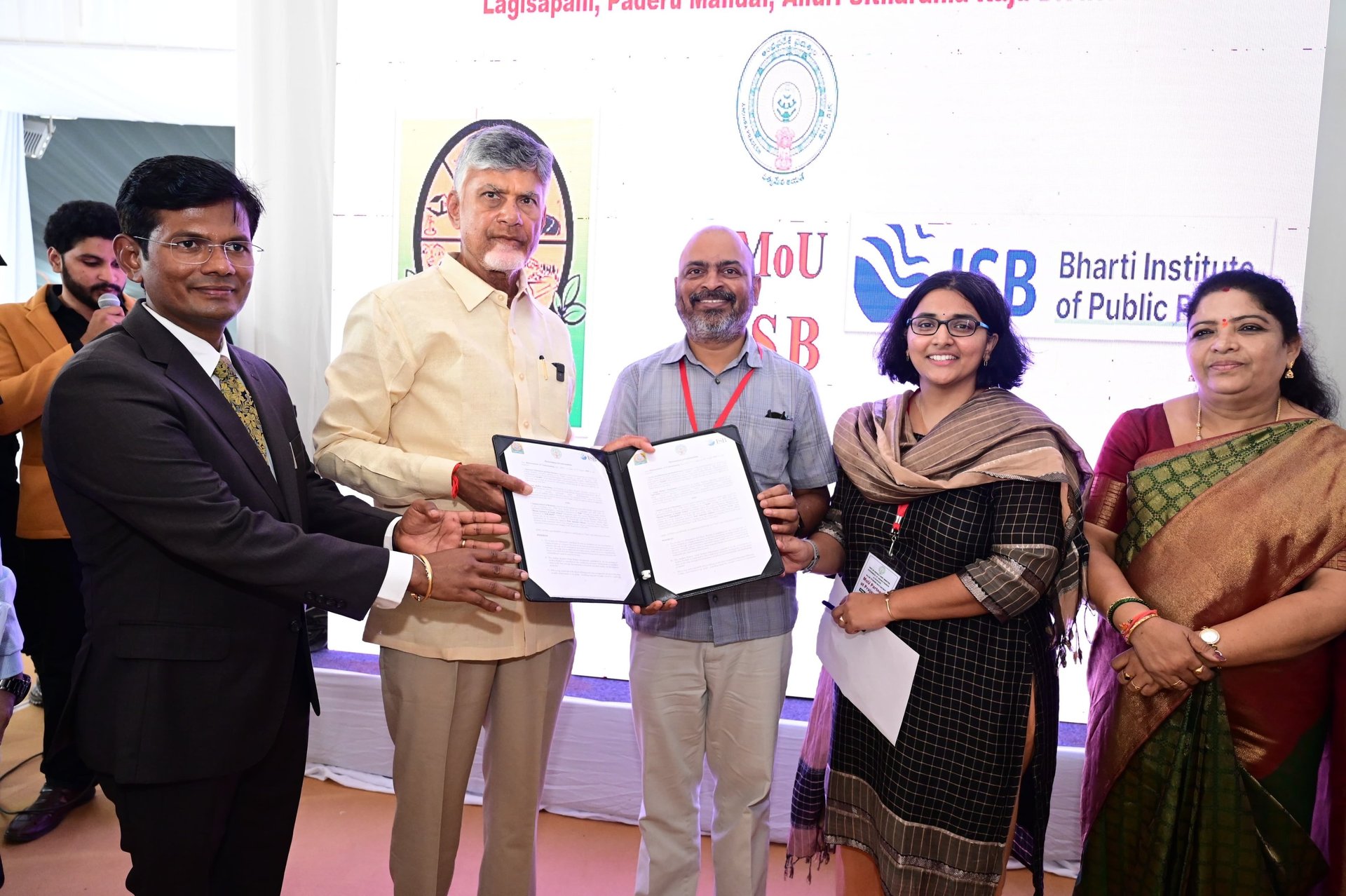
09.08.25
Tripartite MoU Signed to Build a Tribal Women-Led Forest Economy in Andhra Pradesh
A landmark tripartite Memorandum of Understanding (MoU) has been signed between the Society for Elimination of Rural Poverty (SERP), Andhra Pradesh Tribal Welfare Department (APTWD), and Bharti Institute of Public Policy (BIPP) at the Indian School of Business (ISB). The MoU aims to create a prosperous and sustainable forest economy through tribal women-led community enterprises in Andhra Pradesh.
Over a three-year period, the collaboration will create jobs and income for tribal households that are the primary collectors of seasonal forest products (SFPs). It aims to establish community-owned, sustainably managed forest landscapes that sequester carbon, conserve biodiversity, and enhance ecosystem services. SERP will serve as the nodal agency, coordinating activities across multiple state departments in Andhra Pradesh.
Strategic Partnership Framework
The initiative will launch with a comprehensive pilot in Alluri Sitarama Raju (ASR) district, with a planned scale-up across several districts in Andhra Pradesh. Key interventions include:
tech-enabled recognition of Community Forest Resource Rights (CFRR) under the Scheduled Tribes and Other Traditional Forest Dwellers (Recognition of Forest Rights) Act, 2006 (in short, the Forest Rights Act, FRA);
formation of tribal women-led producer companies (PCs);
creation of an advanced forest inventory using satellite data and machine learning; and
establishment of direct market linkages with institutional buyers.
Institutional Roles and Responsibilities
BIPP–ISB will lead capacity building, technology development, and the establishment of direct market linkages. This includes training Community Resource Persons (CRPs, trained community members who deliver mobilisation, technical extension, and handholding support) on forest inventory mapping, enterprise formation, and business operations. BIPP–ISB will also develop mechanical solutions for primary processing and build digital applications for recognition of CFRR titles.
SERP will coordinate field-level implementation through self-help groups (SHGs) and Mandal Samakhyas (mandal- or block-level federations of village organisations). It will also facilitate community mobilisation, infrastructure support, and convergence across multiple government departments in Andhra Pradesh.
APTWD will accelerate the recognition of CFRR titles through technological interventions. It will also activate FRA cells at the level of the Sub-Divisional Level Committee (SDLC) and support the formation of Community Forest Resource Management Committees (CFRMCs).
The partnership leverages complementary strengths in field-level reach, institutional networks, technology frameworks, and policy expertise to promote forest-based economic prosperity. It places women's leadership at the centre of natural resource management, supports sustainable value addition for forest products, such as bamboo, and facilitates formal purchase agreements with private sector organisations at above-market prices. These measures are designed to increase household incomes while maintaining forest conservation objectives, ensuring long-term ecological, social, and economic benefits for tribal communities.
